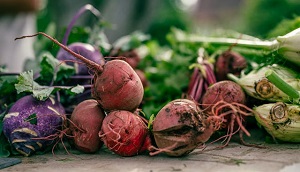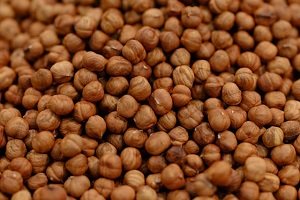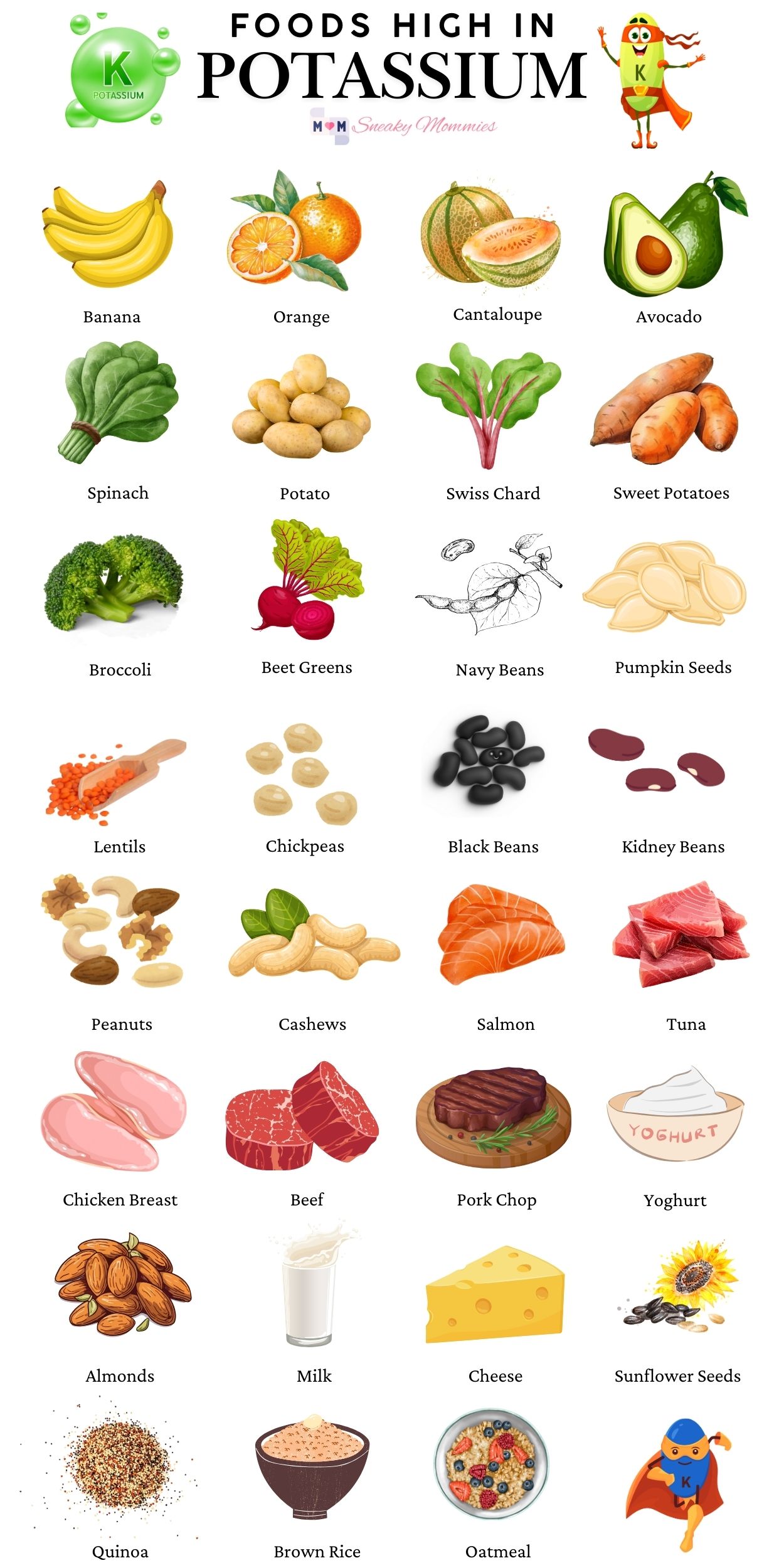An essential mineral, potassium is involved in regulating multiple body functions. Consuming adequate potassium (through food) regularly helps muscle and nerve function, regulating blood pressure and balancing fluids. Despite its importance, many individuals fail to consume enough potassium. This shortfall can lead to multiple health issues, such as muscle weakness, fatigue, and even cardiovascular problems.
Here’s a list of potassium-rich food items which you can incorporate into your daily diet.
Fruits
1. Banana – 422 mg per medium fruit
Bananas are a potassium powerhouse and one of the most convenient snacks to carry around. Its high potassium content is crucial in maintaining healthy blood pressure and proper muscle function. No wonder bananas are a popular choice amongst athletes and individuals who focus on physical fitness.

2. Avocado – 485 mg per medium fruit
Avocados pack a creamy texture with a generous 485 mg of potassium. Known for their healthy fats, these fruits help balance electrolytes, aiding hydration and heart health. Again, due to their fat content, avocados also help enhance nutrient absorption.

3. Sweet Potato – 541 mg per medium Potato
Sweet potatoes are a deliciously sweet source of potassium. Their natural sweetness and texture make them good options for savoury and sweet dishes. Sweet potatoes are also rich in fibre and antioxidants.

4. Orange – 237 mg per medium fruit
The refreshing oranges offer 237 mg of potassium per medium fruit. Beyond a boost of tangy hydration, the potassium content in oranges helps with muscle contractions and nerve function. Having an orange as a whole is better than juicing it and removing all the fibre.

5. Cantaloupe – 427 mg per cup (cubed)
Cantaloupe is a hydrating melon that offers 427 mg of potassium per cup. It contributes to healthy heart function and muscle contractions. Consume it as a fruit or mix it in your smoothies for some versatility.

Vegetables
6. Spinach – 839 mg per cooked cup
Spinach is a powerhouse of both potassium and magnesium. Its versatility has always made it a must-have amongst fitness enthusiasts, healthy freaks and everyone in general. Potassium in spinach helps in nerve signalling and muscle contractions. Potassium in spinach helps in nerve signalling and muscle contractions.

7. Potato – 926 mg per medium baked potato
A medium-baked potato consists of nearly 926 mg of potassium, which is extremely impressive. Potatoes are also rich in fibre and other vitamins, thus good for digestive health and satiety.

8. Swiss Chard – 961 mg per cooked cup
Swiss chard has an incredible 961 mg of potassium per cooked cup. This flavourful vegetable not only provides a nutrient boost but also contains antioxidants. Also, Swiss chards have a slightly bitter taste, but sautéing or stewing makes them delicious.

9. Beet Greens – 1,300 mg per cooked cup
Beet greens are the kind of potassium with 1,300 mg per cooked cup, the highest of all in this list. These leafy tops are often overlooked but are nutrient-dense and versatile. They add richness of colour and flavour to every dish they go with.

10. Broccoli – 457 mg per cooked cup
Broccoli contains 457 mg of potassium per cooked cup. This cruciferous vegetable is high in potassium and a good source of immune-friendly vitamins and antioxidants. Enjoy it steamed, roasted, or in stir-fries for a crunchy side dish.

Legumes
11. Lentils – 731 mg per cooked cup
Lentils like moong and masoor pack a powerful punch with 731 mg of potassium per cup (cooked). They are not only an excellent source of this mineral but also rich in protein and fibre.

12. Kidney Beans – 607 mg per cooked cup
With 607 mg of potassium per cooked cup, kidney beans are a versatile legume to have regularly. They are high in fibre and antioxidants, which contribute to heart health and help regulate blood sugar levels.

13. Black Beans – 611 mg per cooked cup
Black beans offer 611 mg of potassium, which improves your potassium levels every day. Known for their rich flavour and creamy texture, black beans are also rich in fibre and protein, thus promoting fullness and digestion.

14. Chickpeas – 477 mg per cooked cup
A cup of cooked chickpeas contains 477 mg of potassium. The nutty flavour and firm texture of chickpeas make them ideal for salads, stews, humus or gravy dishes. Chickpeas are quite filling and help support healthy digestion and blood pressure.

15. Navy Beans – 702 mg per cooked cup
A cup of cooked navy beans contains 702 mg of potassium. These nutritional powerhouses are high in fibre and protein as well. You can enjoy them regularly in soups, casseroles, or baked bean dishes.

Nuts and Seeds
16. Pumpkin Seeds – 588 mg per ounce
The crunchy and nutritious pumpkin seeds contain 588 mg of potassium per ounce. Being packed with healthy fats, magnesium, and antioxidants, they reduce inflammation and support heart health.

17. Almonds – 208 mg per ounce
Almonds provide 208 mg of potassium per ounce. This wholesome snack choice can be enjoyed raw or roasted in the form of nut butter or in several other ways. Almonds are also a good source of healthy fats, fibre, and vitamin E, which contribute to skin and heart health.

18. Peanuts – 238 mg per ounce
Combining flavour and nutrition in every bite, peanuts are a good source of protein, healthy fats and potassium. They contain 238 mg of potassium per 28 grams. You can enjoy them daily as roasted, in trail mix, or as peanut butter.

19. Sunflower Seeds – 325 mg per ounce
Sunflower seeds pack 325 mg of potassium per ounce. This nutrient-rich dietary option supports heart health and skin wellness. It is also a good source of vitamin E and healthy fats.

20. Cashews – 292 mg per ounce
Twenty-eight grams of cashews contain 292 mg of potassium, along with magnesium and healthy fats. Consuming them regularly contributes to bone health and overall wellness.

Fish and Meats
21. Salmon – 628 mg per 3.5 oz (cooked)
Salmon is a delicious fatty fish and a nutritional choice for a balanced diet. It provides a substantial 628 mg of potassium per 3.5 oz. Making salmon a part of your daily diet supports heart health and helps regulate blood pressure.

22. Tuna – 484 mg per 3.5 oz (cooked)
Tuna is not only a popular seafood option but also packs 484 mg of potassium. The lean protein content in tuna supports muscle health and weight management. You can enjoy it in salads, sandwiches, or sushi.

23. Chicken Breast – 256 mg per 3.5 oz (cooked)
Chicken breast is a lean source of protein, which contains 256 mg of potassium per 3.5 oz cooked. While its potassium content is lower than that of some other meats, you can have it regularly in your meals. Chicken breast is versatile and can be grilled, baked, or stir-fried.

24. Beef – 270 mg per 3.5 oz (cooked)
When enjoyed in moderation, beef can be a good source of potassium. Per 3.5 oz, it contains 270 mg of potassium along with vital nutrients like iron and zinc. Beef helps maintain healthy muscle and nerve function as well.

25. Pork Chop – 421 mg per 3.5 oz (cooked)
Pork chops is a hearty meat known for its high potassium content. It is also a good source of protein and several B vitamins, which support energy metabolism.

Dairy Products
26. Yoghurt – 531 mg per cup
Yoghurt is a creamy dairy product that contains 531 mg of potassium per cup. Those who want a potassium boost in the morning can have yoghurt as breakfast, either plain or with granola, in smoothies, along with fruits, etc. Its probiotics support gut health, while potassium helps regulate fluid balance and muscle function.

27. Milk – 388 mg per cup
A cup of cow’s milk contains 388 mg of potassium, whereas a cup of skim milk contains 415 mg. Consuming a glass of milk regularly contributes to bone health thanks to its calcium content. This versatile beverage is beneficial for hydration and can be enjoyed in multiple ways.

28. Cheese (Cottage) – 206 mg per cup
Cottage cheese, commonly known as paneer, contains 206 mg potassium per cup. This fat, high-protein dairy option is great for snacking alone, or you can add them to gravies, salads, sandwiches or multiple other ways. While its potassium content is lower than some other dairy products, it still contributes to your daily intake.

Grains
29. Quinoa – 318 mg per cooked cup
Quinoa is a nutrient-dense grain with almost every nutrient you can think of. A cup of cooked quinoa contains nearly 318 mg of potassium. It is a known source of complete protein, all nine essential amino acids, fibre and several other vitamins.

30. Brown Rice – 154 mg per cooked cup
Brown rice contains 154 mg of potassium in every cooked cup. This whole grain retains its bran and germ and thus contains additional nutritional values than white rice. This hearty grain is a great source of complex carbohydrates, promoting sustained energy.

31. Oatmeal – 164 mg per cooked cup
Oatmeal is a comforting, easy and one of the most healthy breakfast options. Rich in soluble fibre, one cup of cooked oatmeal contains 164 mg of potassium. Consuming it regularly helps regulate cholesterol levels and supports digestive health since oatmeal promotes fullness. It is also ideal for those on a weight loss journey.

Frequently Asked Questions
How can I raise my potassium quickly?
To quickly raise your potassium levels, have a glass of coconut water with a handful of potassium-rich nuts. You can also opt for a glass of milk for a quick boost.
Is 1 banana a day enough potassium?
No, one banana a day isn’t enough to meet your potassium needs. The recommended daily intake of potassium for adults is about 2,500 to 3,000 mg. So, while bananas are a good choice, include a variety of other options in your daily diet.
What are some signs of low potassium?
Constipation, fatigue, muscle weakness or spasms are some mild to moderate symptoms of low potassium. Whereas lightheadedness or fainting, low blood pressure and abnormal heartbeat can be some alerting signs.
How to check potassium levels at home?
Checking potassium levels is not possible without a medical test, particularly a urine test. However, you can monitor potential symptoms of low potassium and consult a healthcare professional accordingly.





Leave a Reply